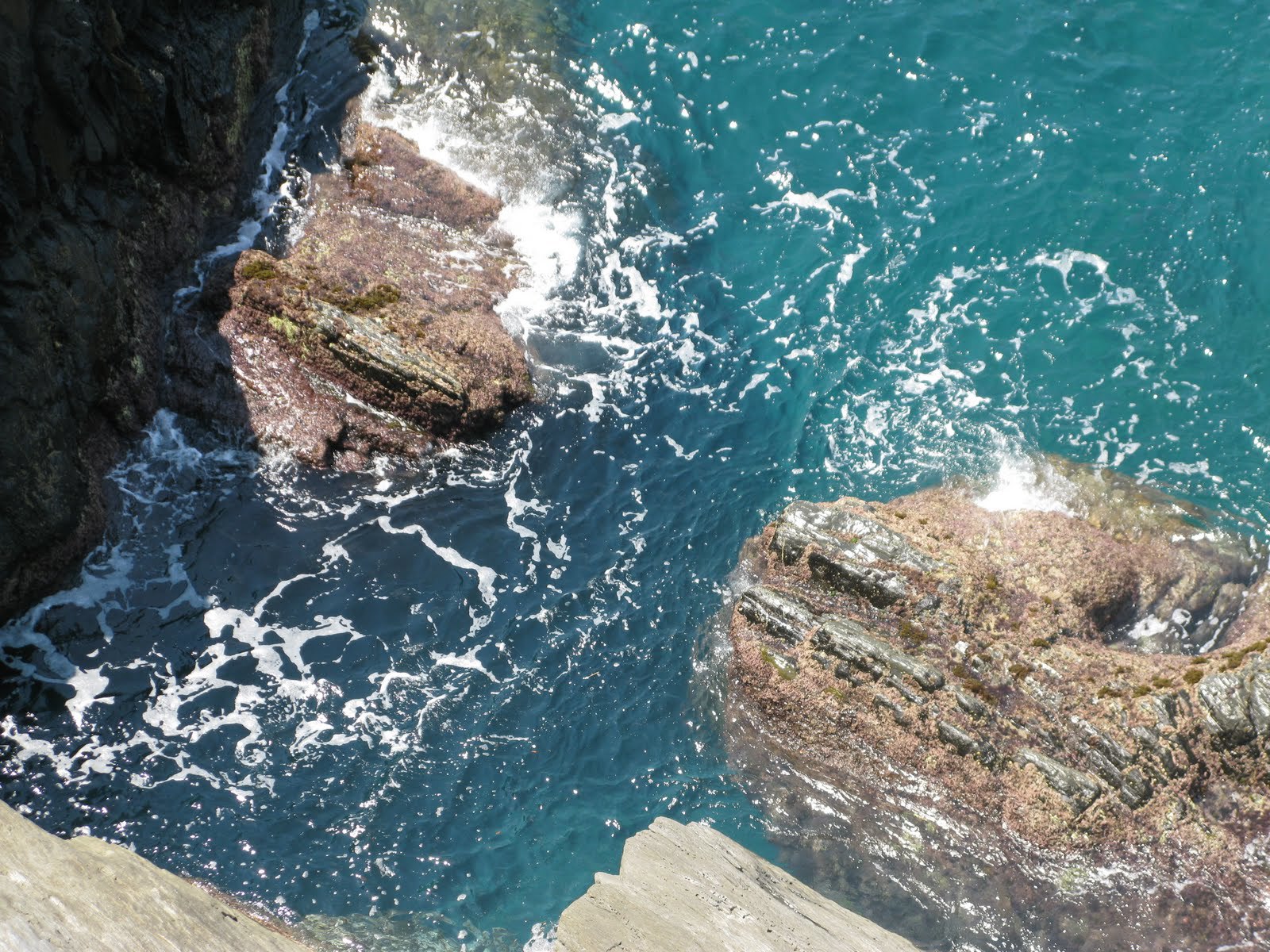There's an interesting thread to be explored between the nature of creativity and that of understanding. For the two emerge from the brain eventually. And one might give hints about the other. How our brains yield ideas should gives us clues about how it comprehends the world around us. But eventually, for the sake of simplicity, we need to find the single biggest determinant of how to think better.
Life = Soup
I probably owe this post to Steven Johnson and a quote from his book 'where ideas come from'
In a sense, dreams are the mind's primordial soup : the medium that facilitates the serendipitous collisions of creative insight. And hunches are like carbon atoms, seeking out new kinds of connections to help them build new chains and rings of innovation

I think these two sentences single-handedly sum up the combinatorial nature of creativity and the importance of slowness when it comes to generating breakthroughs. In other terms, all ideas, be them the ones we pursue and that translate in hunches or the ones we don't, such as dreams, are the happy children of two eternal parents : Mix & Wait.
Sleep is a busy time, interweaving streams of thought with emotional values attached, as they fit or challenge the organizational structure of all this action, I believe is to regulate disturbing emotion in order to keep it from disrupting sleep and subsequent waking functioning
I read that in brain-pickings. I find it incredibly interesting how our sleeping body regulates to ensure we get rest. Yesterday night, the place where I was sleeping got really noisy and the person next to me started snoring as if to cover up the noise, hence ensuring an iron-clad sleep for one self and a sleepless night for me. But sleep is more than just about dreams and mental soups where thoughts and emotions meet and mate. I believe it was in brain-pickings that I read how some writers sleep their way out of a creativity block. Probably not because dreams might come out of it. Rather because the "wait" part is sacred when it comes to creativity and writers need to stop and get bored often so that ideas have the time to mix and mingle.
On earth at least, the story of life's creativity begins with a liquid, high-density network: connection-hungry carbon atoms colliding with other elements in the primordial soup
Johnson again. And as much as this quote conveys the importance of a proper environment where the right ingredients have been added, the alert reader will be reminded just how long it took for that primordial soup to yield new 'stuff'. How long intelligent life had to 'wait' until it came about.

Soup = Growth
Life itself is combinatorial. A constant ebb of mix and wait. And if you've had the thrilling chance to study combinatorial mathematics and see the astronomic numbers coming out of the simplest equations, you certainly realize how rich life's yield is. A constant lottery where so many numbers are created and so many are ditched. And moving from creativity to understanding, it's strange that we often perceive life as an axis. One that starts in a hot boiling geyser somewhere near the hemisphere. And looking at that axis, it is interesting to see how instrumental time is in our understanding of life. In an article in Science about how thermodynamics is today being considered a candidate for a unifying theory of everything in Physics, one could read :
A process such as dissolved dye molecules forming themselves into a clump offends our sensibilities because it appears to amount to running time backwards as much as anything else, although the real objection is that it decreases entropy
Time is synonymous of disorder. An egg can go from a whole state to a broken state. There is no way on Earth it could go from the latter to the former however. And that movement is defined by entropy. Put simply, it is the universe's tendency to grow, on every imaginable level. In the example of the egg, state 1 is 'whole' (1 possibility), state 2 is either 'broken' or 'whole' (2 possibilities). This urge to grow is so fundamental to the universe that scientists are considering thermodynamics and entropy as the basis of a new holistic approach to physics.

Put these two speculative relations together with standard, undisputed connections between entropy, temperature, kinetic energy and velocity, and it is possible to construct a quantity that mathematically looks like gravity, but is defined in terms of entropy. Such theories, which are by no means universally accepted, suggest that when bodies fall together it is not the effect of a separate fundamental force called gravity, but because the heating that results best fulfills the thermodynamic diktat that entropy in the universe must always increase.
In other terms, no general relativity no bla-bla, if a body falls once it goes up it is because its energy expenditure needs to go up. It needs to actuate its entropy in other terms. But the most interesting part comes about later.
Maxwell's problem was with life. Living things deliberately do things to other things to make life easier for themselves. Conceivably, they might try to reduce the entropy of their surroundings and thereby violate the second law. Such a possibility is highly disturbing to physicists. Either something is a universal law or it is merely a cover for something deeper. Yet it was only in the late 1970s that Maxwell's entropy-fiddling "demon" was laid to rest. Its slayer was the US physicist Charles Bennett, who built on work by his colleague at IBM, Rolf Landauer, using the theory of information developed a few decades earlier by Claude Shannon. An intelligent being can certainly rearrange things to lower the entropy of its environment. But to do this, it must first fill up its memory, gaining information as to how things are arranged in the first place.
This acquired information must be encoded somewhere, presumably in the demon's memory. When this memory is finally full, or the being dies or otherwise expires, it must be reset. Dumping all this stored, ordered information back into the environment increases entropy – and this entropy increase, Bennett showed, will ultimately always be at least as large as the entropy reduction the demon originally achieved. Thus the status of the second law was assured, albeit anchored in a mantra of Landauer's that would have been unintelligible to the 19th-century progenitors of thermodynamics that "information is physical."

How beautiful is that ? We as a species always interact with our environment in that manner. We try to control its entropy. The uncertainty it might yield. So how exactly do we achieve that ?
Growth = Bits
We build walls and cities to keep the wilderness and danger of nature away from us. And even our need for understanding is actually a need to lower entropy. When confronted with a massive amount of information or more interestingly an information cluster that grows at a rapid pace, our reaction is to build tools and models to try and control it. We have 'bookmark' apps today to organize and store the ever-increasing web in a neat format we can grab and comprehend. But it's not a new phenomenon. We created religions and systems of beliefs, saints and messiahs, to simplify what is singular and alien to our understanding. Limit it to attain an understanding.
The Fermi paradox is a beautiful mental experiment that models this chunk-ing process. Though I think it has holes in it but still. Here's a small courtesy of Wikipedia :
The Fermi paradox is the apparent contradiction between high estimates of the probability of the existence of extraterrestrial civilization and humanity's lack of contact with, or evidence for, such civilizations. The basic points of the argument, made by physicists Enrico Fermi and Michael H. Hart, are:
- The Sun is a young star. There are billions of stars in the galaxy that are billions of years older;
- Some of these stars likely have Earth-like planets which, if the Earth is typical, may develop intelligent life;
- Presumably some of these civilizations will develop interstellar travel, a technology Earth is investigating even now;
- At any practical pace of interstellar travel, the galaxy can be completely colonized in just a few tens of millions of years.
According to this line of thinking, the Earth should have already been colonized, or at least visited. But no convincing evidence of this exists. Furthermore, no confirmed signs of intelligence elsewhere have been spotted, either in our galaxy or the more than 80 billion other galaxies of the observable universe. Hence Fermi's question "Where is everybody?".

Seriously! Where is everybody ? Keep in mind however this is much more a thought experiment than an actual outcry against the fact aliens seem not to want to talk to us. The Drake equation gives a clearer idea of the Fermi Paradox in that sense by saying : the whole paradox is simply a way to organize our ignorance. His equation actually breaks down the problem into a series of unknown chunks. "Organizing our ignorance", in other terms breaking down our problems into size-able (or maybe computable chunks), should be a major focus today. Can we use the web to do that ? Can we build a machine ? Google is organizing the world's information. Who's organizing our ignorance. Organizing the world's ignorance is much more useful it seems as it outlines the steps for any problem's solution. Our new machine would break down all our problems into size-able chunks people can take on and start resolving. There is still no automated way to do that.
The reason why this is important emerges when you familiarize with Gestalt psychology's. One of the fundamental laws of this descriptive approach of the human mind is the law of proximity. It states that we perceive objects that are near each other as forming groups.

If you look at the illustration above, you'll see three distinct groups of points on the right and one big group on the left. Now you're thinking it's obvious. But is it ? Why the hell is it this way ? Why don't we conceive of the three groups as two, one made out of two double row groups and one made out of a single double row group ? Gestalt however is a purely descriptive theory. "Why" is not a concern. It is however quite informative as to the nature of our understanding.
Bits = Story
"The universe is made of stories, not atoms" wrote poet Muriel Rukeyser. We build our world upon meshes, links, explanatory narratives. That is the reason why we're amazed by theories of everything, because these are stories in a way, more complete, more satisfying to our subconscious than granular explanations and separate theories. We like things to go from point A to point B or at least point A to be related to point B when they have something in common. "Proximity justifies similarity" said Malcolm Gladwell. Hence Gestalt's law of proximity. I've been obsessed by this saying for a long time. In a way it reminds me of "birds of a feather flock together" only it makes you wonder whether it's because they're of a feather that they flock together or rather that it's because they flock together that they end up being of a feather.
But I digress. Stories are the lattice on which our understanding is built but from the reasoning above, now we realize that they come about because we chop life into understandable chunks. Stories are much more a Lego construction where similar building blocks end up next to each other (Gestalt's law of proximity) than a ready-made thread we stick over the things we encounter. And it's no wonder we've grown fond of stories and ended up being good at producing them. We like links and meshes not because they're more elegant. Aesthetics have no business here. But rather because they've allowed us to transmit knowledge and survive. They were easier to memorize and transmit. As Peter Cosgrave points out : "Facts tell. stories sell". Let me ponder later upon whether that quote was really necessary :)
Story = Meta
If you've done some programming in your life, you might have heard of Booleans. These are not simple information but rather 'orders' you write in programming language for computers to execute. They herd several bits of data. They're meta-data in a way. And just as Booleans are essential to any program, meta-cognition is crucial to our brain functioning Thinking about thinking, which some might call philosophy, is the bird's eye view that allows to visualize and understand what has been happening. Information is meaningless without a meta-level view. Meta yields meaning. And that is why stories are important. They are once removed from reality. They live at another level.
Artificial Intelligence brings an interesting light to the reflection here. Scientists trying to reverse engineer the brain have thought deeply about the brain's functioning. Vicarious for example is a company trying to replicate vision. In a talk at Singularity summit, they use a great metaphor on how the Wright brothers did not try to replicate a bird's dynamics to accomplish flight. There were other fundamental principles that needed to be leveraged. And Gestalt psychology comes to mind again as human perception is focused on the whole rather than the parts and uses laws such as the law of proximity and similarity to perceive things. So why not use the same rules to make computers see as humans do.
Another abstract example is willpower. Maybe you don't need to replicate the whole human system (brain, neurons, emotions and bla-bla) to achieve that and all you really need to see is that willpower behaves like a muscle in that it will develop under tension but will crash when chronically used. This is a constructivism, structuralism and holistism (if these words even exist).

Life = ... = Meta
I've been wondering lately whether perfectionism was baked into us for evolutionary purposes. Whether it was an evolutionary advantage. And I've heard this TED talk lately about how beauty is not in the eye of the beholder but rather something much more universal than we might have thought since we all share some common reference points when it comes to beauty. The Mona Lisa is the low hanging fruit. Models and stars aren't contrary to what you might think. Attractive body composition has changed throughout centuries. Maybe the more food became abundant, the more skinny girls became attractive for example. Why ? In times of scarcity, fat signals opulence and fortune. Hence, a fat or well-rounded person was a well-off person with whom the prospects of mating would yield an evolutionary advantage for one's offspring.
But I digress. Why talk about perfectionism ? Mainly to introduce obsessiveness as it feels the latter is a manifestation of the former or vice versa. And obsessiveness, among other things includes tidying things up in a single place. Maybe to have a better bird's eye view on where one is. Maybe just because boxes look much better when put in other boxes that you then organize in one other big box. And put in the corner of the room ... Next to that other box there.
And what I'm trying to get to here is that it all starts with obsession. An unshakable conviction. A purpose that's so inherent it's become the very scent of your soul. A consistent manic to collect what one sees around. Showing up over and over. Take it in as bits. Build it up as stories. Let it rest for some time and see small ideas and stories combine and yield big ideas. Obsession. Collection. Creation. Comprehension ... Obsession. A constant abstraction of Life. Onward and upward. The secret to thinking better seems to be working out i.e. thinking more and more often.









































































